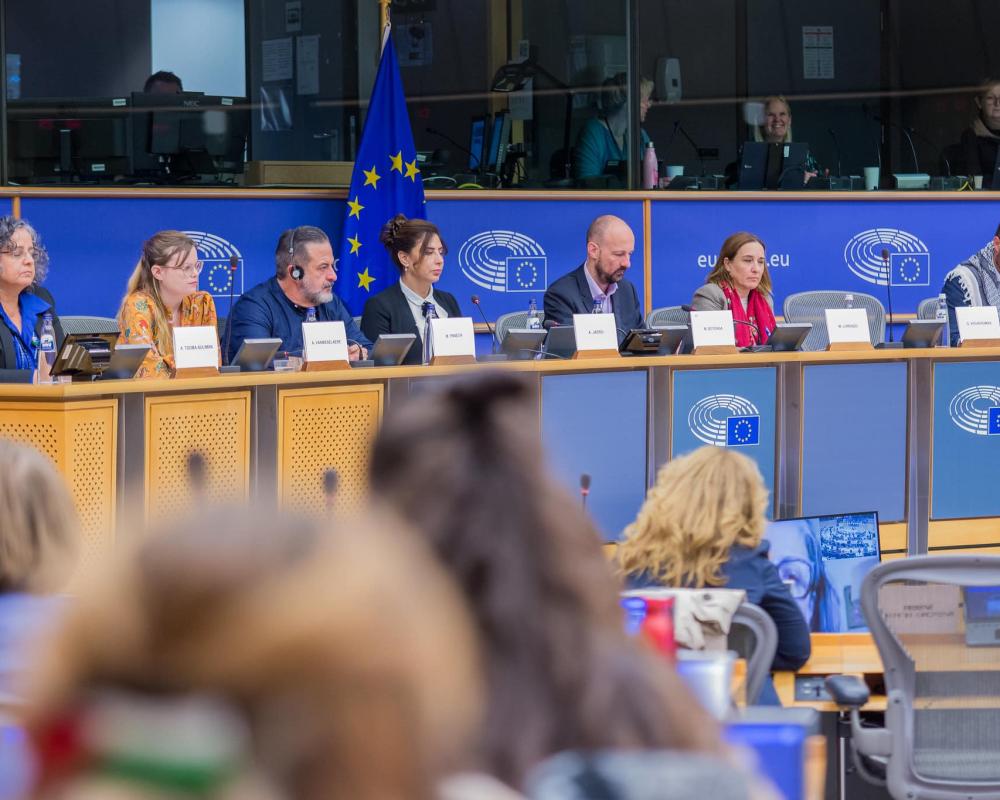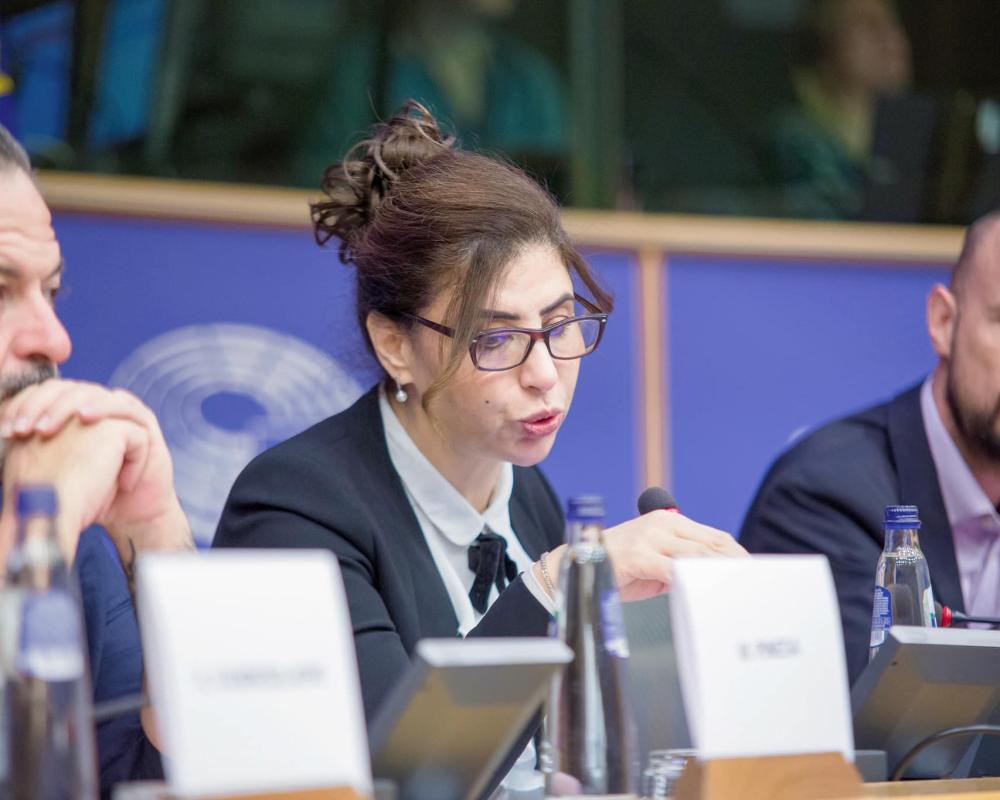Brussels / PNN /
The Palestinian Mission to the European Union, Belgium, and Luxembourg welcomed the responses received today from the European Commission regarding the EU's commitment to not recognising Israel's sovereignty over the 1967 territories and its adherence to the advisory opinion of the International Court of Justice on 19 July, which confirmed that Israel's occupation of Palestine is illegal.
In a statement issued by the Palestinian Mission to the European Union, represented by Ambassador Dr. Amal Jado Shakka, the Mission expressed its appreciation for the European Commission’s positions. These responses followed important questions raised by European parliamentarians regarding key aspects of the situation in Palestine.
Dr. Jado Shakka, Head of the Palestinian Mission to the European Union, Belgium, and Luxembourg, stated that these positions and responses from the EU reflect the importance of the coordinated efforts made by the Mission with European parliamentarians and European civil society organisations to ensure that Palestinian rights remain central in the EU's policy discussions.

Ambassador Jado described these statements as a step forward, emphasising the continuation of efforts with European partners to translate them into tangible actions that promote justice and human rights for the Palestinian people.
The first question was posed by MEP Lin Boyalen, Chair of the European Parliament's Relations with Palestine Committee, focusing on the advisory opinion issued by the International Court of Justice on 19 July 2024. This historic opinion declared Israel's occupation of Palestine to be illegal under international law and reaffirmed the commitment of countries not to engage in economic or commercial transactions with settlements in the occupied territories.
The European Commission, through Commissioner Maros Šefčovič, reaffirmed the EU's firm position of not recognising Israel's sovereignty over the occupied territories since 1967. The Commission also emphasised that goods produced in illegal Israeli settlements are excluded from the EU's trade preferences.
The response also highlighted ongoing discussions within the Council regarding the implications of the advisory opinion and the further measures being considered to support international law.

The second question was presented by 18 European parliamentarians from the Green and Left groups, including MEP Jaume Asens Lludra and MEP Mark Botenga, who visited Palestine during the olive harvest season. This visit, which was coordinated by the Palestinian Mission in Brussels, was part of efforts leading to the parliamentary question on the EU's stance regarding the allegations of genocide in Palestine. Vice President and High Representative of the EU, Kaya Kalas, reaffirmed the EU's commitment to international humanitarian law, its continued focus on protecting civilians, and ensuring humanitarian aid access.
She also clarified that decisions to impose restrictions on arms exports or sanctions remain within the jurisdiction of EU member states and the Council, requiring consensus. She pointed to the steps the EU has already taken to impose sanctions on extremist settlers involved in human rights violations.
In related developments, the European Union reiterated its strong support for all UN agencies, including the United Nations Relief and Works Agency for Palestine Refugees (UNRWA), which plays a vital role in the Middle East. The EU stressed that UNRWA’s work is indispensable for Palestinian refugees.
EU officials also urged Israel to freeze the implementation of its legislative measures against UNRWA to ensure continued access to essential services for Palestinian refugees.
